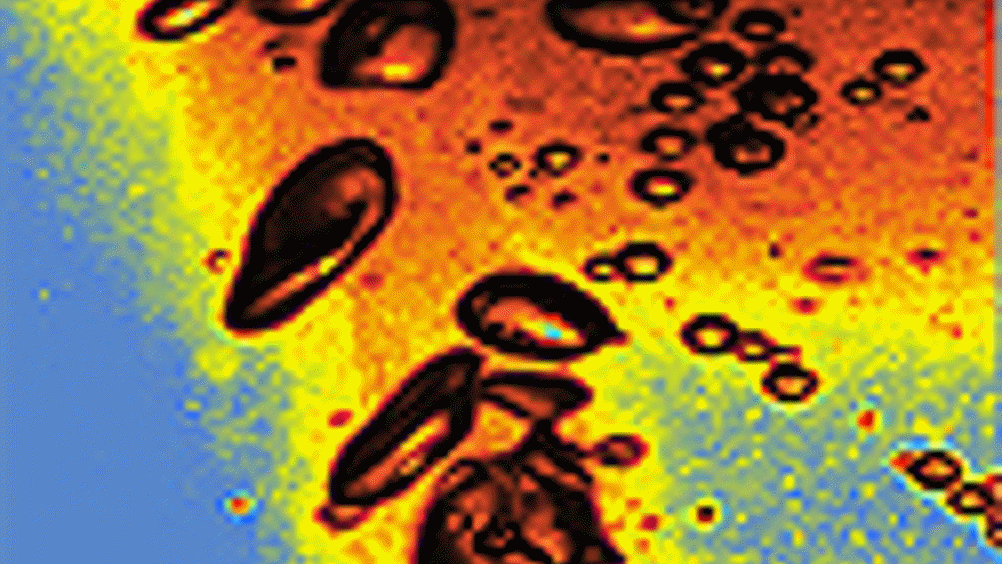Testing time for water
Researchers at the Weizmann Institute's Organic Chemistry Department have developed a new method of detecting water that could replace current complicated and time-consuming techniques.

Small amounts of water in the wrong places – such as fuels, lubricants, or organic solvents – can cause motors to sputter, metal parts to rust, or chemical reactions to go awry. That's why one of the most common lab tests performed in industry is one that looks for traces of water in other substances, even though the test itself is complicated and time-consuming.
A new method for detection and measurement of small amounts of water, developed in the lab of Dr. Milko van der Boom in the Weizmann Institute's Organic Chemistry Department, might allow such tests to be performed accurately and quickly. Van der Boom and postdoctoral fellow Dr. Tarkeshwar Gupta created a versatile film on glass that is 1.7 nanometres thick. The film can measure the number of water molecules in a substance even when it contains only a few parts per million.
‘The problem,’ said van der Boom, ‘is that water is hard to detect and to quantify.’ His method is a departure from previous sensing techniques. In general, such sensor systems are based on relatively weak but selective "host-guest" interactions. In the Weizmann Institute team's sensor, metal complexes embedded in the film steal electrons from the water molecules. When the number of electrons in the metal complexes changes, so does their colour, and this change can be read optically. Devices based on optical readout do not need to be wired directly to larger-scale electronics – an issue that is still a tremendous challenge for much of molecular-based electronics.
Register now to continue reading
Thanks for visiting The Engineer. You’ve now reached your monthly limit of news stories. Register for free to unlock unlimited access to all of our news coverage, as well as premium content including opinion, in-depth features and special reports.
Benefits of registering
-
In-depth insights and coverage of key emerging trends
-
Unrestricted access to special reports throughout the year
-
Daily technology news delivered straight to your inbox










UK Enters ‘Golden Age of Nuclear’
The delay (nearly 8 years) in getting approval for the Rolls-Royce SMR is most worrying. Signifies a torpid and expensive system that is quite onerous...